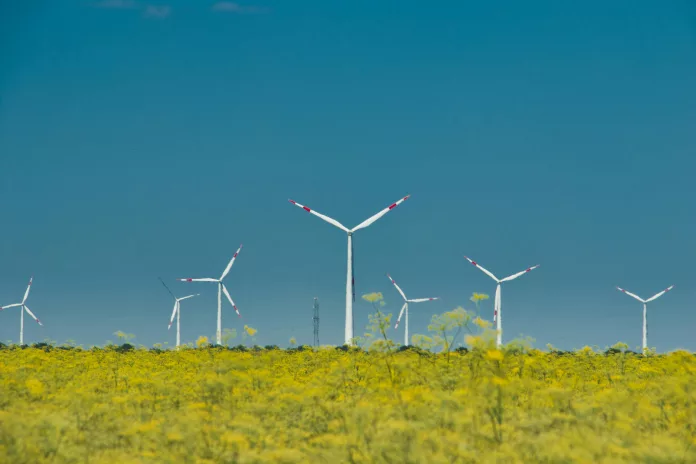Recent advancements in building regulations, codes, and standards are setting the stage for a more energy-efficient and eco-friendly future. Key policy changes spearheaded by the Biden Administration illustrate a firm commitment to reduced energy use, lower carbon emissions, and cost savings in the construction and operation of buildings.
Investments by the Department of Energy (DOE) have been directed toward various initiatives, including creating new rules, bolstering energy codes, and establishing performance standards for existing buildings. With its deep repository of technical know-how and collaborative relationships with the DOE, code organizations, and varied stakeholders, the Pacific Northwest National Laboratory (PNNL) is a driving force behind these improvements.
Highlights of PNNL’s influential work across different building sectors and systems paint a picture of their impact on sustainability.
Federal buildings stepping up on energy efficiency
Under new energy efficiency mandates, federal construction projects and significant retrofits are now held to higher energy code standards. The DOE anticipates that this change will lead to substantial operational cost savings—forecasted at over $4 million—right from the first year of policy implementation.
PNNL’s Erik Mets explains that to establish these requirements, in-depth analyses were conducted, including the study of federal building stock, ensuring the new guidelines align with both commercial and residential sectors.
Manufactured Homes: The next frontier for sustainable living
Occupying a significant portion of the housing market, manufactured homes (MFHs) are often the abode of underserved communities. In an exciting move, new conservation standards have been introduced for these homes which are expected to benefit energy usage, utility costs, indoor air quality, and overall comfort levels.
Vrushali Mendon from PNNL remarks on how their expertise in energy codes contributed to the rule while their large-scale modeling analysis played a pivotal role in setting the technical groundwork for these standards.
National model building energy codes are paving the way for net-zero emissions
PNNL’s vital role in developing energy codes is instrumental for the nation’s goal of achieving net-zero operational energy in buildings by 2030. Their collaboration with ASHRAE and IECC is helping shape the future of commercial and residential buildings alike.
Michael Rosenberg of PNNL notes that the development of new performance-based compliance pathways and an extensive library of energy management credits are critical steps toward this ambitious net-zero energy milestone.
Water heaters get a warm efficiency upgrade
Businesses across the country are expected to reap nearly $150 million in annual energy cost savings thanks to new standards for commercial water heaters that demand cutting-edge condensing technology by 2026.
Michelle Niemeyer from PNNL shares their sense of accomplishment in providing extensive expertise to support the development and finalization of this rule.
HVAC systems: A holistic approach to energy savings
PNNL’s novel system performance approach, the Total System Performance Ratio, is set to deliver significant energy efficiencies. This methodology, which evaluates the efficiency of the entire HVAC system, has found its way into ASHRAE standard 90.1 and various state codes.
Michael Rosenberg elaborates that this system performance technique ensures not just energy savings but also time and cost benefits for building owners and managers, highlighting the advantages over traditional component-based efficiency assessments.
Existing buildings meet their energy match with Building Performance Standards (BPS)
Unlike new construction, existing buildings face unique challenges in meeting energy efficiency goals. BPS help bridge this gap by regulating actual energy consumption, thereby reducing environmental impact. PNNL has been pivotal in aiding these efforts, developing key technical resources to support BPS initiatives.
Bing Liu emphasizes PNNL’s comprehensive expertise in BPS, crucial to progressing national and international decarbonization strategies.
New York City pioneers performance-based energy codes
Moving from prescriptive to performance can be a game-changer for building codes, a transition that PNNL has been exploring through a pilot project in New York City. This initiative assesses the energy performance of entire buildings or systems, which can profoundly influence the effectiveness of codes.
Michael Tillou from PNNL shares the excitement surrounding other jurisdictions pursuing this performance-based approach, bolstered by the success and learnings from the New York initiative.
Building Re-tuning™: A key to energy conservation in cities
A novel technique developed by PNNL, Building Re-tuning™, is helping cities like Seattle and Philadelphia to mandate periodic adjustments to building energy and water systems, thereby reducing unnecessary energy waste. This practice reinforces the importance of regular maintenance to ensure optimal building operation and efficiency.
Srinivas Katipamula at PNNL underscores the significant energy savings that can be achieved when building owners proactively seek and amend operational inefficiencies.

























